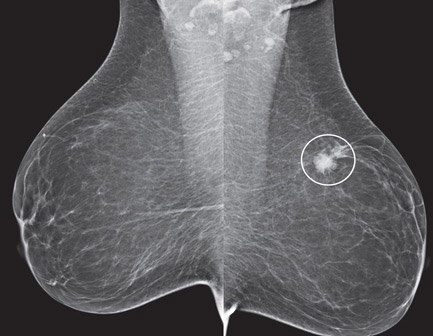
“Regular mammograms detect breast cancers before they can be felt, when they are more easily treated,” said Dr. Jean Seely, Head of Breast Imaging at The Ottawa Hospital and Regional Breast Imaging Lead for the Ontario Breast Screening Program.
One in nine women will get breast cancer, and 80 percent of those women have no known risk factors or family history.
So, what’s the best way to avoid dying from breast cancer? Get screened! That means having regular mammograms.
Women who are screened regularly for breast cancer are more likely to have smaller cancers, are four times less likely to have cancer that has spread to their lymph nodes, and have a 40 percent reduction in breast cancer mortality.
Here are some other statistics that may convince you to book your mammogram today:
- The risk for breast cancer begins to rise rapidly after age 40.
- 18 percent of all breast cancers occur in women aged 40 to 49.
- 23 percent of all breast cancers occur in women aged 50 to 59.
- Breast cancer is the single leading cause of cancer death in women under age 60.
- The largest numbers of unscreened women are aged 50 to 54.

Breast cancer was diagnosed from this first mammogram for a 62-year-old woman.
If you are 50 or older, you can schedule your own mammogram with the Ontario Breast Screening Program – no doctor’s note required. Call 613-728-0777. If you are aged 40 to 49, you may be screened at The Ottawa Hospital, with a doctor’s note. A mammogram takes only 10 minutes, should not be painful, and is done every one or two years.
Most breast cancers have no symptoms. They do not generally cause pain and, when small, do not present with a lump. Regular mammograms detect breast cancers before they can be felt, when they are more easily treated. And earlier detection results in less-extensive treatment.
Taking the time to have a mammogram might save your life or the life of a loved one.

Support patient care and research at
The Ottawa Hospital


 To reset, hold the Ctrl key, then press 0.
To reset, hold the Ctrl key, then press 0.